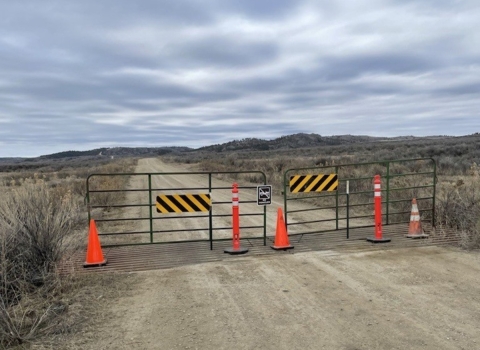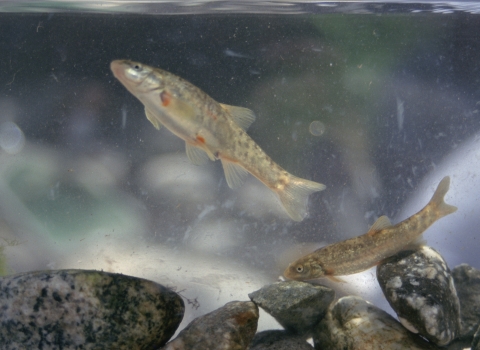A lizard species once feared to be vanishingly scarce is now known to have several thriving populations across its historical range in the Edwards Plateau region of Central and West Texas, as unveiled by recent research. As a result of these findings, today the U.S. Fish and Wildlife Service is announcing a 12-month finding that the Plateau spot-tailed earless lizard will not be listed under the Endangered Species Act.
"We are excited to share the positive news that the Plateau spot-tailed earless lizard’s population is healthy and does not require protection under the ESA,” said Jeff Fleming, the Service’s Acting Southwest Regional Director. “This outcome is a direct result of the dedicated efforts of researchers and conservation partners who have worked tirelessly to gather crucial data on this species. Their work has enabled the Service to make informed decisions about the lizard’s conservation status."
This determination is one of several recent instances in Texas where species have been found to not need ESA protection thanks to in-depth scientific research or proactive conservation efforts. Other examples include the Plains spotted skunk in 2023 and the desert massasauga in 2020.
Across the Southwest, 58 other fish, wildlife and plant species have avoided ESA listing thanks to the collaborative efforts of federal agencies, states, Tribes and private landowners, with the ESA serving as a catalyst for conservation efforts that help protect at-risk species and their habitat.
The Plateau spot-tailed earless lizard is a small, spotted lizard that can be found in grasslands on the Edwards Plateau. Despite its name, the species does have small ears concealed behind skin flaps to protect it from sand and debris.
When a petition was filed to protect the species and its two subspecies under the ESA in 2010, a scarcity of research on its population status made it difficult to assess the lizard's true condition. The Service published a substantial 90-day finding with a request for scientific information on the species the following year.
Several years of funding from The Texas Comptroller's Office and Texas Parks and Wildlife Department enabled university researchers to gather important data on the lizard by conducting surveys and locating the species across its range. In addition to surveying for the lizard, researchers documented the genetics, habitat needs and land use in the range of the lizard, and provided much of the scientific information used to draft the Service’s peer-reviewed Species Status Assessment.
The assessment revealed that despite facing various stressors, the species maintains multiple resilient populations distributed across an area comparable to its historical range. Threats of habitat loss, habitat modification, and vehicle collisions seem to affect only a small proportion of the species, with the remaining populations demonstrating the ability to endure unpredictable events.
“This is a prime example of how sound scientific research can guide effective conservation decisions,” said Michael Warriner, Supervisory Fish and Wildlife Biologist with the Austin Ecological Services Field Office. “Through rigorous research and monitoring conducted by universities in Texas, we gained a deeper understanding of this species and its population dynamics, ultimately finding that it is not in danger of extinction.”
This research also revealed that the Plateau spot-tailed earless lizard and the Tamaulipan spot-tailed earless lizard, previously considered subspecies of the petitioned spot-tailed earless lizard, are distinct species. The Tamaulipan spot-tailed earless lizard is on the Service’s Fiscal Year 2023-2027 National Domestic Listing Workplan to be evaluated for a 12-month finding.
The Service is committed to collaborative conservation, transparency, and ensuring that ESA findings are science driven. The Service worked with diverse stakeholders to gather the best available science on this species.
Organizations involved with research on the Plateau spot-tailed earless lizard include the Texas Comptroller’s Office, Texas Parks and Wildlife Department, University of Texas at Austin, University of Texas at Arlington, Texas A&M University–College Station, Texas A&M University – Kingsville, Texas Tech University, The Nature Conservancy and others.
For more information on the Service’s decision to not list the Plateau spot-tailed earless lizard, visit the Federal Register and search docket number FWS-R2-ES-2023-0260.




